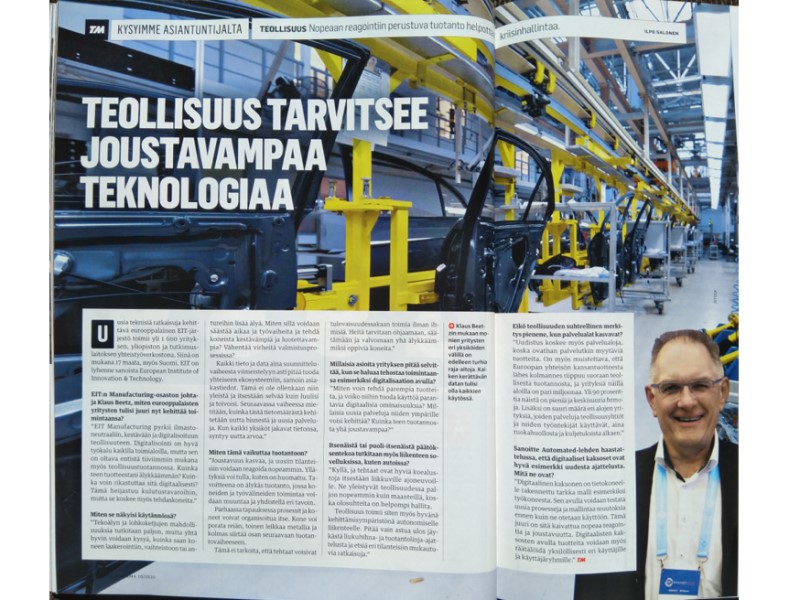EIT Manufacturing’s CEO, Klaus Beetz, interviewed by the Finnish Tech Magazine, Tekniikan Maailma*

Journalist: ILPO SALONEN
CEO EIT Manufacturing: Klaus Beetz
How should European companies develop themselves in the current context?
“EIT Manufacturing is working towards a more climate neutral, resilient and digitalized industry. Focusing on the last point, digitalization will be a great support, but only if it is strongly tied to production. Questions to ask are: How do I make my product smarter? How can I enrich it digitally? This is reflected in consumer products, but it is as valid for factory machinery.”
How would it happen in practice?
“The possibilities of artificial intelligence and other digital technologies like digital twins or block chain are currently being assessed. However, one might as well ask how I can get more intelligence into the machine’s bearings, gearbox or sensors. How can these new technologies save time and effort while making our machines more durable and reliable? How can we use this technology to reduce errors in the manufacturing process?
How does this affect production?
“We increase flexibility and we can respond quicker to new situations. The goal is intelligent production, where the operation of machines and tools can be transformed and combined in new and different ways.
Ideally, processes and machines will be able to work seamlessly together. One machine can drill the hole, another cut the metal and a third one can move the part to the next phase in the production process. But factories will still need to employ people. But we need people needed to control, adjust and monitor these machines which are becoming more and more intelligent.”
In your opinion, will the relative importance of the industry diminish with the service sector growing?
“The transformation also applies to the service sectors, because services are also “products” for sale. We have to take into account that roughly one third of the Combined GDP of the EU directly depends on the industrial production, with several million active companies. Furthermore, more than 90 percent of these companies are small or medium-sized enterprises. In addition, there is a large number of companies in various sectors, whose services are used by industrial companies and their employees in their daily lives, from food supply and transportation. So manufacturing remains important.”
* (shortened English version based on the Finnish original)


 Share this page
Share this page


